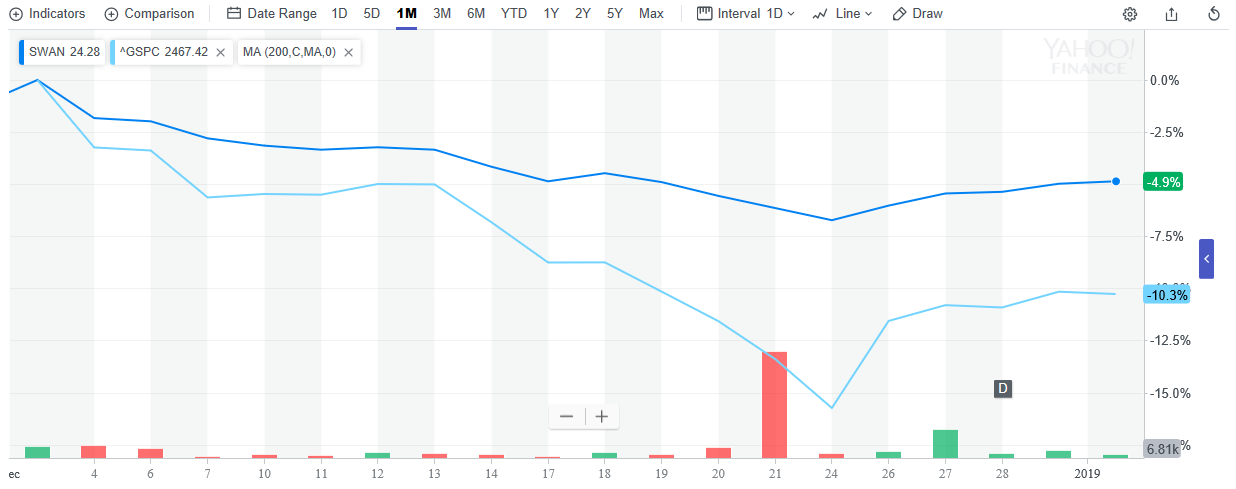According to the Corporate Finance Institute, the following can portend a black swan event–the term popularized by former Wall Street trader Nassim Nicholas Taleb in his book Fooled by Randomness:
- A black swan event is an event that is unpredictable to the observer.
- A black swan event results in severe and widespread consequences.
- After the occurrence of a black swan event, people will rationalize the event as having been predictable–also known as the hindsight bias.
A prime example of a black swan event would be the 2008 financial crisis, but more recent events like the United Kingdom’s Brexit could also be deemed a black swan-type event.
SWAN seeks to buffer the impact of a black swan event since 90% of SWAN will be invested in safe-haven U.S. Treasury securities, while approximately 10% will be invested in SPY LEAP Options in the form of in-the-money calls. This gives investors exposure to capture any potential upside by staying invested in the S&P 500 if, for example, a permanent trade deal is negotiated between the U.S. and China.
The market volatility seen towards the end of 2018 was absorbed using SWAN’s strategy, resulting in only a 4.9 percent loss during December while the loss in the S&P 500 was doubled.

As mentioned, SWAN will absorb any negative market downturns by investing in the tried-and-true safe haven of Treasury notes if negotiations happen to go awry between the U.S. and China–due to their negative correlation with the S&P 500. Of course, anything can derail a 2019 comeback of U.S. equities, but however a black swan manifests itself, SWAN has investors prepared at a low cost with a 0.49 percent expense ratio.
“Investors are increasingly looking for rules-based equity strategies that can adapt to various equity market conditions,” said Christian Magoon, CEO of Amplify ETFs. “We believe SWAN offers investors the ability to participate in S&P 500-like returns over a market cycle, while systematically limiting equity market downside.”
Related: Largest Preferred ETF ‘PFF’ is Getting a New Index
For more market news, visit ETFTrends.com.
